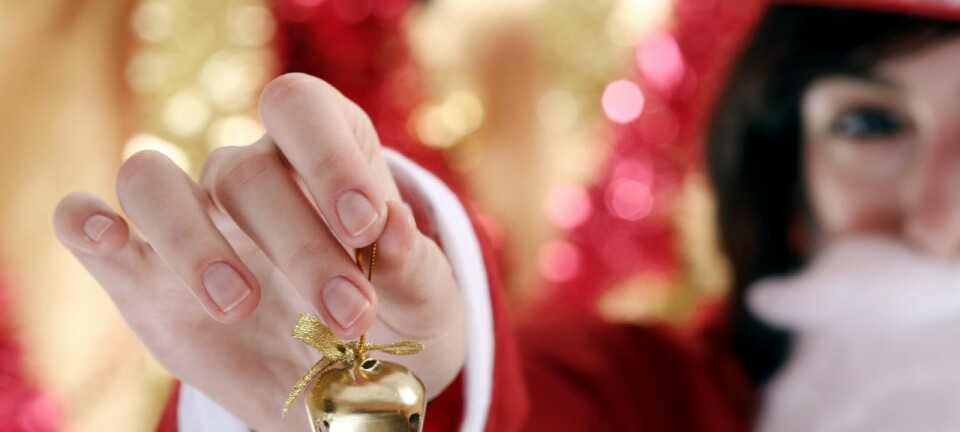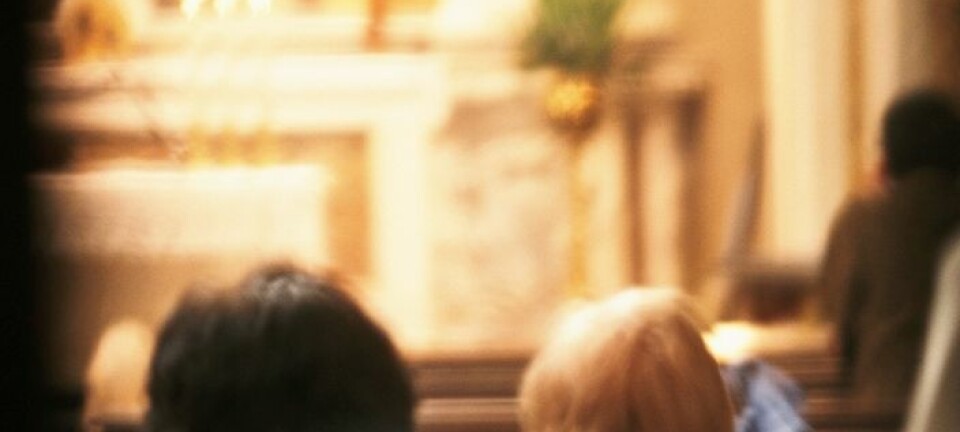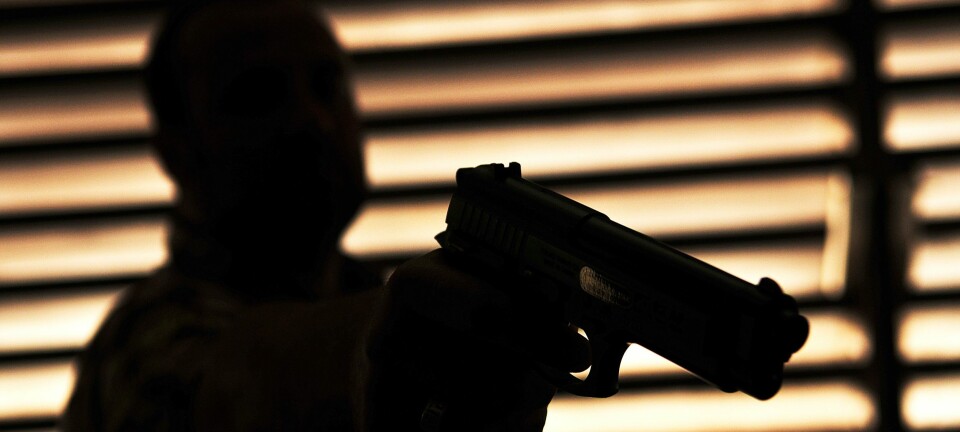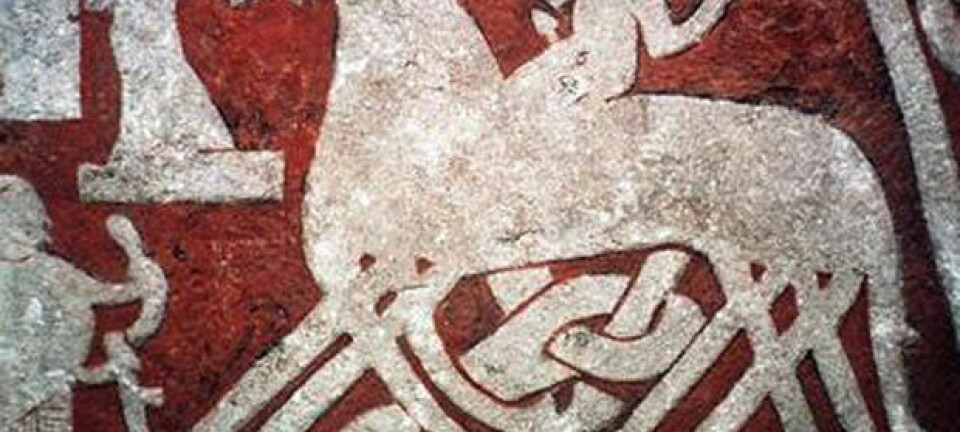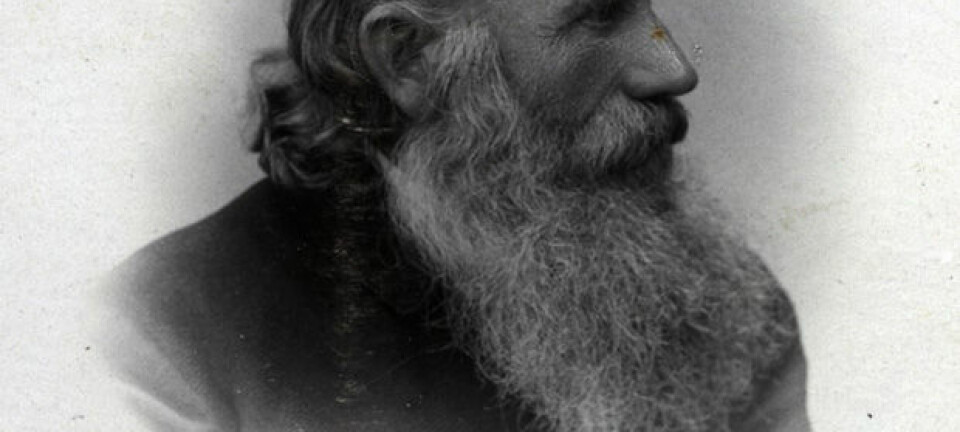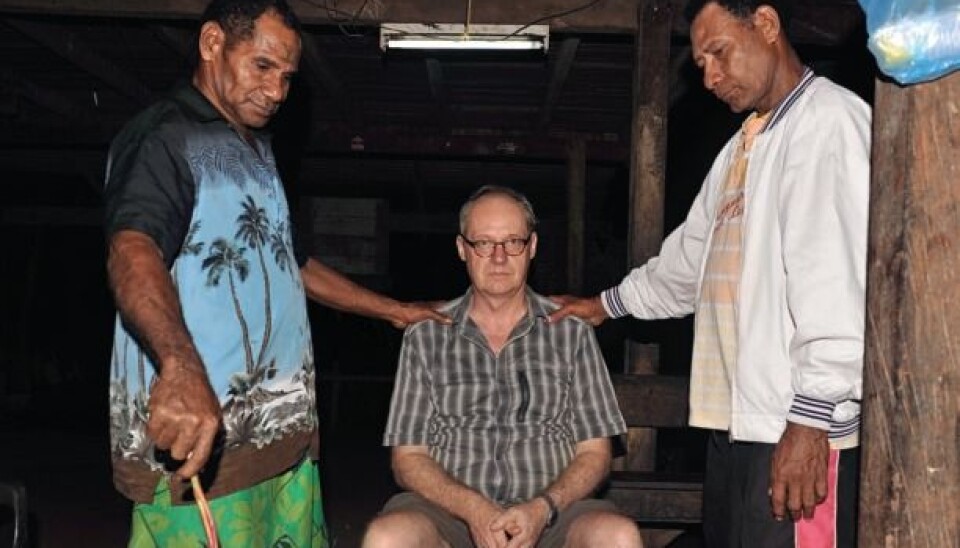
Anthropologist: this is how I met the spirits
What a scientist learned from his encounter with a necromancer and the spirits of his ancestors.
Editor’s note: The Baluan people of Papua New Guinea believe their dead ancestors have a special power and the ability to play an active part in the lives of the living. Scientists, on the other hand, perceive the world to be a rational place void of magic. Ton Otto, a professor from Aarhus University, is now trying to unite the two worlds. This is his story.
On Manus the dead are a part of everyday life.
I’ve known this since 1986, when I started my field study on the island of Baluan, a small island in the Bismarck Sea that’s part of the Manus Province of Papua New Guinea.
But then again, did I really know?
My insight primarily stemmed from interviews and observations that led me to conclude that the Baluan people believe their dead ancestors have a special power and the ability to play an active part in the lives of the living.
But did I fully understand what it really means to live in a world that is, as it were, populated with spirits of ancestors who have long since passed? I don’t think I did -- and in a way that doesn’t surprise me.
A farewell to the spirits
I grew up in the Catholic part of the Netherlands and during my childhood different kinds of spiritualism was part of my everyday life.
Naturally, we believed in God as the almighty and omniscient creator, but there were also a number of spirits that formed a greater part of every day life.
There were various angels that protected us and manifestations of the devil that wanted to lead us into temptation.
We would pray for members of the family who had passed away to ease their transition from purgatory to heaven, and when we needed consolation or protection, we could turn to the Virgin Mary and the saints.
When I reached puberty, I made what I considered to be a radical break from all this superstition. Instead, I acquired a new cosmology based on the knowledge I got from the science subjects in school.
A world of logic and observation
The world was now purely rational and entirely void of magic.
And even though science failed to explain everything, the way I viewed the world was based on the idea that everything – with time – could be explained with logic and observations of reality.
Most likely, spiritual manifestations were simply projections of the unconscious, the deceitful trickery of sensory impressions or misunderstandings of natural phenomena.
I had no problem leading a life without spirits, but even so, deep down I always had a nagging feeling that I’d cut myself off from a lot of experiences.
The spirits stir
My latest visit to the island of Baluan was about to change this completely. A chain of events would once again bring the presence of the dead close to my personal experience.
It all started one night, when I woke up with a clear and compelling vision that I should ask the Baluan family that had adopted me as well as some of my friends for moral support for the projects that I had planned.
I wanted to write a book about cultural change on the island and organise an ethnographic exhibition on the topic.
Throughout my stays on the island, my family and friends had helped me in various ways with information as well as practical assistance, but it now became completely clear to me that I needed additional help to handle the tasks that I felt were challenging and hard to complete.
It was time to meet the spirits
I discussed my nocturnal experience with a close friend, Keket Maluan, in whose house I was staying.
He thought it might be a sign and decided to consult others in the village on the matter.
In particular, he turned to Sakumai, the leader of the Sauka family, who had adopted me, as well as to a well-known necromancer who was widely known for his ability to summon the spirits of the dead.
The two of them decided that it was time to introduce me to the spirits. The necromancer, who was also spiritual mentor to both Keket and Sakumai, suggested that this introduction should happen in two phases, the last one being a so-called baptism.
Meeting your ancestors require gifts
The first phase was to be the classic ‘tenten’: a conversation with the spirits of the dead family members. This part was to be led by Sakumai and Keket.
Oscar, the necromancer, had decided the time and place. It was to happen two days later, at midnight in Sakumai’s house. I was to bring presents for the ancestors in the form of a bowl of betel nuts, a piece of cloth, and some tobacco and money.
When the ceremony was about to begin, everyone but Keket, Sakumai, and myself was asked to leave the room.
Summoning the Baluan ancestors
First we prayed to God.
This surprised me, as the Christian mission on Manus had been very dismissive towards necromancy, but Sakumai explained that God had created all, including man and the spirits.
He went on to explain that man consists of three parts:
-
The body, which returns to Earth at the moment of death.
-
The spirit (maloanapun, the image of the holy), which returns to God.
- The soul (maloayamat, the image of man), which stays on Earth and can be summoned.
Which is actually what happened.
Keket had placed the bowl of presents on a table next to a bowl of water. While he held my left shoulder, Sakumai held my right shoulder with his left hand. With his right, he started to stir the water with a whisk made of leaves.
He summoned some of Sauka’s ancestors, calling them by their names and greeting them. He then started to speak in a calm and melodious voice.
In short he told me that I, Ton, am a child of Sauka. I may be white, but Ngat Selan has adopted me, and when I stay in the village I work for the Sauka family -- by which he meant that I take part in the traditional ceremonies that are carried out at major family events such as marriage or death.
Spirits as protection against illness and danger
Sakumai went on to say that I was helping the family strengthen their name.
He said that I had made a film and by doing so had introduced the world to the Sauka name. I was soon to travel back to my wife and two children in Denmark.
He then asked the spirits to protect my family and me from illness and other kinds of danger. They were to follow me and stay with me always.
He then showed the ancestors the present in the bowl and said that he was certain that I would keep helping the Sauka family and carry on making their name stronger.
It should be mentioned that Sakumai then put an exchange between the living and the dead into words.
He summoned the dead members of the family so that they could protect me, and in return I would strive to maintain and strengthen the Sauka family’s reputation.
I worked for them, and because of this they were to work for me by employing their special knowledge and powers.
Science can’t explain all
After this experience I was excited about the next ceremony, the baptism, which was to take place on the main island, where Oscar would be.
We were to arrive early to make sure that we had time to eat and talk.
Oscar asked me lots of questions about my experience in Keket’s house and other situations that might have involved spirits.
I answered as truthfully as my memory allowed and gave accounts of a few experiences where I had noticed that others had clearly felt that they had been influenced by sprits.
I also referred to a few dreams that I’d had about spirits.
Oscar asked me about a great number of details, such as where the events had taken place.
After a while, he seemed to be content and made it clear that science doesn’t have an explanation to everything. I almost felt like I’d passed an exam.
Summoning the Dutch ancestors
The ceremony started at the determined time and Keket, who was the only other person present, had prepared a table on which my presents were laid out, just as at the tenten ceremony.
In addition, there were betel nuts, ginger and a special kind of bark.
I was to take off my shoes, socks, shirt and glasses. And just as we had done at the first ceremony, we started by praying to God.
Oscar then summoned the spirits of my paternal grandfather and maternal grandmother from the Netherlands, whose names I had given him prior to the ceremony.
He told them both about the task that I had planned, part of which was to create a successful ethnographic exhibition at Moesgaard Museum in Denmark.
The initiation takes place
Oscar spoke in two different languages. First he used the native Baluan language, then Butcho, which is one of the languages of the main island, where he had been trained in necromancy.
When that came to an end, he chewed a betel nut with ginger and some of the bark and blew a little cloud of this mixture onto my forehead.
He touched my eyes and ears, then spat on my chest and back and finally on my hands and feet.
He then used the whisk of leaves to hit me in all of these places while calling out in Butcho, which is a language I don’t understand.
It was a very intense experience with great emotional outbursts, and at the end of it Oscar gasped and looked completely exhausted.
He explained to me what he had said and done and what the function of the touching of the various body parts had been.
The ancestors want to protect against all evil
I had received a very important blessing, a special power and insight that stemmed from the ancestors, just as he himself long ago had received this from a necromancer on the main island.
This power was now a part of me and would remain so for the rest of my life. And if I wanted to, I too had the power to pass it on.
The ancestors would now stand behind me and help me, and they would protect me from all evil, even terrorist attacks, said Oscar.
He had summoned my own biological ancestors because they would stand in the first row behind me, followed by the spirits from Baluan and the ones from the large island that he himself had been introduced to.
At once I realised how powerful it was to see oneself take part in and carry out a collective action that included the dead.
A life with the spirits
While in the Netherlands I had learned to pray for my late relatives and help them on their way to heaven, here on Manus I learned to understand that the spirits can also help me reach my goals.
I asked Oscar how I could contact them and he told me that I would find that out myself.
Time will tell whether I will, and if the support of my ancestors will help me reach my goals.
But the events that took place on Manus have already taught me something important: to know that your ancestors will stand behind you as a factor in your actions gives a sense of continuity and purpose that is very different from the rational, modern person’s individualised consciousness.
Perhaps the idea of dismissing the ancestors wasn’t so bright after all.
My attitude towards the potential and relevance of science hasn’t changed fundamentally, but my experiences on Baluan have made me more open to an existential and thus wide-ranging exploration of the significance of spirits in human lives -- including my own.
----------------
Read the original story in Danish on Videnskab.dk
Translated by: Iben Gøtzsche Thiele
 This article is an extract from the book ‘Lives of the Dead’ (in Danish only) in which a number of researchers examine the lives of the dead around the world.
This article is an extract from the book ‘Lives of the Dead’ (in Danish only) in which a number of researchers examine the lives of the dead around the world.